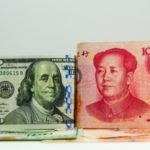Greta Thunberg, a teenager berating prime ministers and presidents over the lack of appropriate conservation of the environment, Pacha Mama, an Inca goddess in the Vatican and the Pope prioritizing the ecological sin as the gravest crime, or the Ecuadorian constitution and Bolivian legislation confers on Mother Earth with legal rights: the world is watching the unfolding events with bated breath. What is happening? Is humanity entering a new era? Is environmentalism to be viewed as a new, universal religion or a mere smokescreen that masks other objectives? The planet Earth as the human habitat can serve as the only imaginable uniting common denominator for all humankind, paving the way for a world government, or the feared the new world order. The agreements and protocols constraining and progressively eliminating the use of fossil fuels signed in Montreal, Kyoto, Paris and other places act jointly like a harness imposed on the whole planet. It is for the first time in the history of mankind that the environment rather than national, social or religious matters seem to be taking the centre stage of global politics and economy. Are we facing a Copernican revolution in the making? The November issue of Gefira takes a deeper look at this nascent phenomenon.
Read more
Gefira Financial Bulletin #38 is available now
- The European inability to govern has dire consequences
- The New CO2 Order of the Crypto Elites – Dark Visions of the Future
- Pacha Mama or Green ideology
















